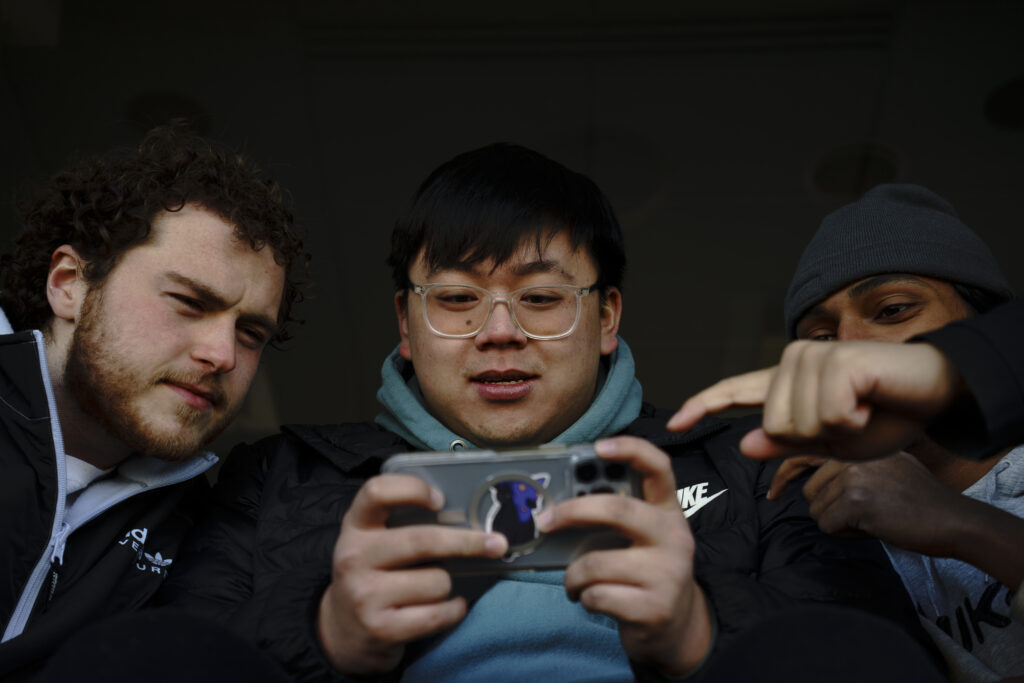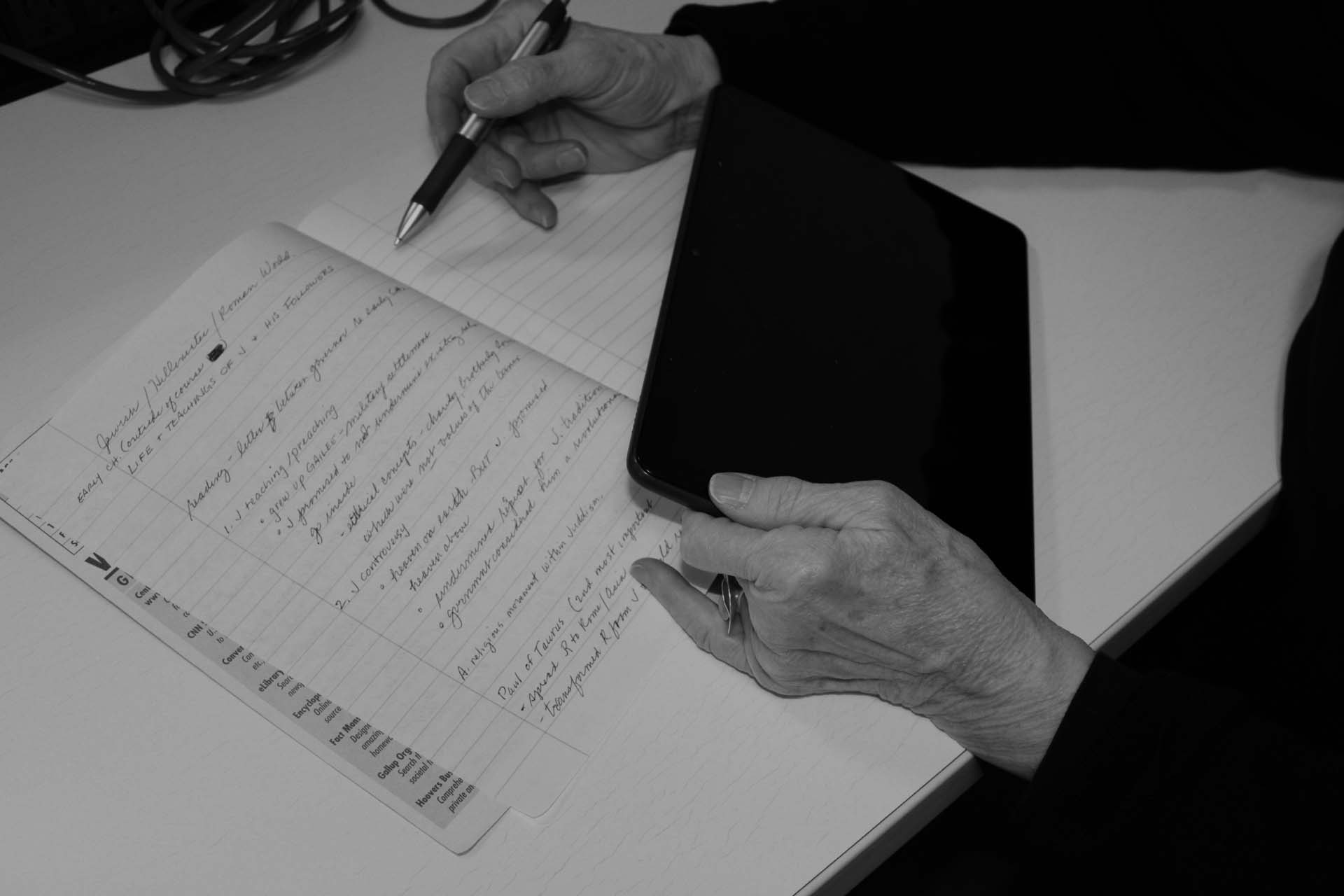
Sports Betting: Upping the Ante
By Gustav DeMars
Empty bleachers at the University of Minnesota Huntington Stadium in Minneapolis on February 28, 2024. Photo by Maya Modelli
As the sports betting industry booms, many are getting in on the action, while some are warning of the risks.
For many young men, betting on sports is like a new form of social media. It’s everywhere, and it makes for an easy way to connect with others.
For doubters — and there are plenty — that’s precisely the problem.
“It’s just solidified in our society. You can bring it up to any group of people and people will pick up on it,” said 23-year-old William Valentin, a recent college graduate. “I never would have thought that would be the case with gambling or betting.”
Valentin said he’s put money on sports since he first got into fantasy football when he was around 15 years old. But he’s noticed a sharp uptick in popularity among young men in the past few years. People who weren’t previously into sports are getting in on the action.
The thrill of winning money, socializing with friends and the validation of one’s sports knowledge are all reasons to bet. For Valentin, the main draw is when he can bet with other people who are watching a game together.
“I’ll do it alone every once in a while, but it definitely enhances the atmosphere all together,” he said. “There’s a sense of community with it like that.”
The U.S. Supreme Court cleared the way for legalized sports betting across the country in 2018. Minnesota is one of 12 states that has not approved it. However, this hasn’t been for lack of trying. Both Republican and Democrat state lawmakers have called for the introduction of sports betting, but a bill has not yet gotten through the Legislature.
This hasn’t stopped Minnesotans from putting down real money on the games they’re watching. There are legal gray areas. With daily fantasy sports apps like PrizePicks, bettors can put money on different outcomes within the games in a straightforward and easy-to-learn way. Unlike the sportsbooks available to those living in states with legal sports betting, daily fantasy sports are considered a game of skill rather than gambling, and are legal for those over 18.
A typical bet on PrizePicks, dubbed an entry, requires little more than selecting a couple of players and deciding if you think they’ll exceed or fall short of a statistical projection, like how many points they’ll score in a game.
Though such platforms escape the label of “gambling,” Susan Sheridan Tucker, executive director of the Minnesota Alliance on Problem Gambling, said they still fit the definition of gambling. Those using daily fantasy sports platforms may research player statistics for their bets, but success is not solely determined by skill, as sports are unpredictable and anything can happen during a game.
“The gambling industry has done a great job in massaging the messages with regard to what is gambling or not,” Sheridan Tucker said. “Unfortunately, I think this is an instance where this is absolutely gambling, and it should not be legal based on our definition of gambling.”
“You click on the face, and then you click on how much money you want to put on it,” Valentin said. “They should’ve never made it that easy to spend your money betting.”

Sports betting and daily fantasy sports have boomed over the past five years. PrizePicks alone has seen its revenue grow 3,712% over the past three years, according to Inc. Magazine.
Sports betting commercials and endorsements can now be found interwoven into live sports broadcasts, and some major professional sports teams have even partnered with the companies.
Nothing has been more indicative of the boom in sports betting than this year’s Super Bowl. Around 68 million Americans were expected to have bet over $23 billion on the sporting event, according to the American Gaming Association.
The bets were hardly limited to the game on the field. Bettors could wager money on everything from Kansas City Chiefs tight end Travis Kelce proposing to Taylor Swift to whether Usher would take his shirt off during the halftime show.
Valentin said he could even bet on which would be higher: the points scored by the San Francisco 49ers or President Joe Biden’s approval rating by the end of his term as president.
While many are focusing on the boom in tax revenue from sports betting, which could bring in an estimated $18 million annually for Minnesota, it’s also raised concerns from some over the potential for addiction. Sheridan Tucker and others across the country have been working to raise awareness around gambling addiction, which they say has gone largely ignored on a state and national level.
Much of daily fantasy sports companies’ advertising consists of promos, which lure new users in with the promise to match the money they deposit.
“It’s extremely effective,” Sheridan Tucker said. “The promo bets are extremely deceptive and people don’t necessarily read the fine print.”
In some cases, users may have to wager a certain amount of money before they can withdraw the money they initially deposited.
Valentin sees these promos as a “foolproof” way of getting people to spend money on these platforms.
“That’s why the enthusiasm is so high off the bat,” Valentin said. “Because you put in $100 and they match it and you have $200. Then you bet that $200 and win $175 and you think that you won $75, even though you actually lost.”
Though Valentin doesn’t have any friends he would consider addicted to gambling, he‘s seen the betting habits of others that could be problematic. The trajectory of most who bet on sports isn’t sustainable in the long run, he said.
“The enthusiasm goes way, way down, but the amount of money spent goes way, way up as time goes on,” Valentin said. “It is just people losing their money to gambling at the end of the day. It’s no different than someone going to the casino and playing blackjack every day.”
Slavik Matveiciuc, a 20-year-old sophomore at the University of Minnesota, also said he recognized the luck involved when playing PrizePicks.
“It definitely still feels like gambling, but I think there’s a way you can set yourself up to have a better chance at winning,” he said.
Matveiciuc has been playing PrizePicks for around a year and a half, ever since a friend of his introduced him to the platform. He takes a low-stakes approach to betting and, like Valentin, likes to do it when he’s with his friends.
Although Matveiciuc said he usually bets daily when he has money in his account, he doesn’t go over $5 per bet, the minimum allowed on PrizePicks. If he runs out of money, he usually won’t deposit more for months at a time.
When selecting the players he wants to put money on, Matveiciuc said he likes to default to others. Many social media accounts have garnered followers by sharing their picks for winning bets, whom followers may choose to emulate or “tail.” Matveiciuc said he’s had success in following advice from such Twitter accounts.
“It’s worked out for me, but myself, I don’t do the work to find those bets. I just tail others,” he said.
Some people rely too heavily on their knowledge of sports when betting, Matveiciuc said. Something that can lose them money.
“It doesn’t really translate to sports betting,” he said. “At least it didn’t for me. I thought I knew about sports until I started sports betting.”



